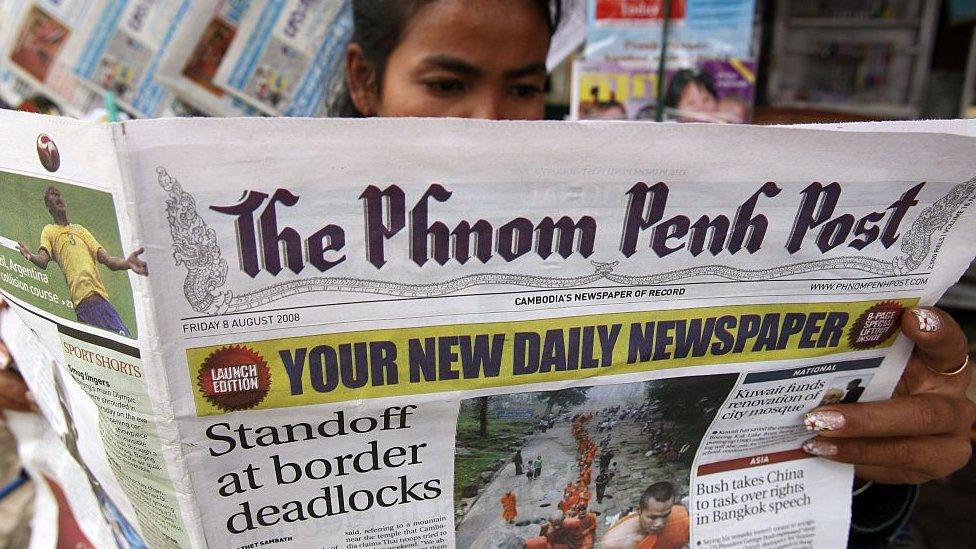Cambodia: 'Every newsroom I work in gets silenced'
- Published
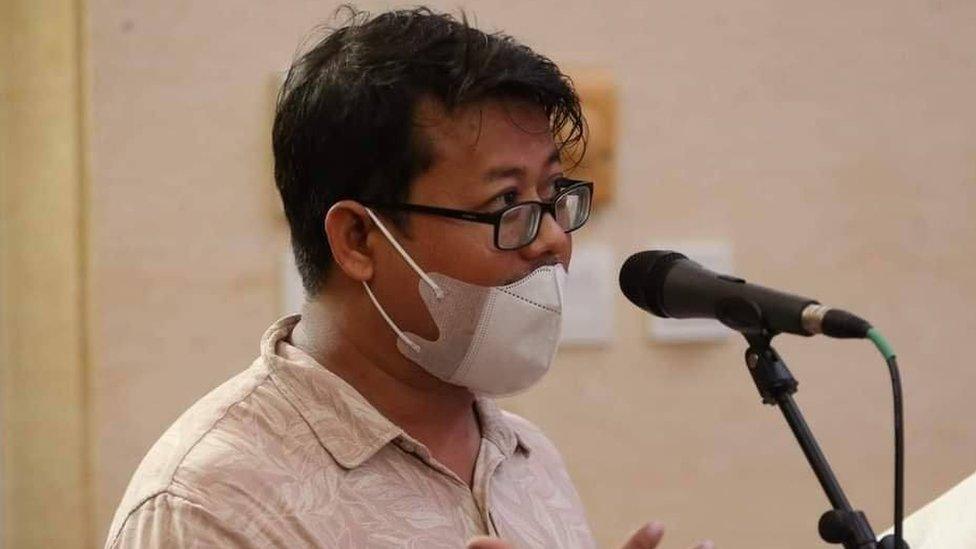
Mech Dara has worked in three independent newsrooms that have been silenced by closure or new ownership
When journalist Mech Dara found out he was losing his job on Sunday, he had a sense of deja vu.
VOD, or Voice of Democracy, is the third independent Cambodian newsroom Dara has worked for to have been silenced - in one form or another - in the past six years.
The Khmer and English language outlet was seen as one of the last frontiers of free press in the country - until Cambodian leader Hun Sen ordered its closure after declaring it had published a story that "hurt" his government's reputation.
A 9 February report on Cambodia's aid response to the earthquake in Turkey and Syria said a $100,000 (£83,000) package had been signed off by Hun Sen's elder son, Hun Manet, an army commander and possible successor. Hun Sen said VOD had crossed a line because foreign aid packages can only be signed off by the prime minister.
"I expected it, but I never expected that it would come this fast," Dara said.
His previous two employers had met a similar fate.
In 2017, The Cambodia Daily shut after being hit with a huge tax bill, a move seen by many as politically motivated. The following year, the Phnom Penh Post was sold to a PR firm that had done work for the government.
Dara's journey to becoming one of Cambodia's most respected reporters has been a long one.
"I was a country boy. In my commune you would hardly see anyone graduating from high school," the 35-year-old journalist said.
When he was in school in the rural Kandal province, Dara would sometimes wake up at 3am and walk 10km (6.2 miles) to a large area where farmers harvested rice. He would collect leftovers and bring them home to his grandmother, before heading off to school. On other days he would miss school to find food.
"I often skipped school to try and catch fish, from morning to evening. Sometimes I would almost faint [from hunger]. It was a part of country life," he said.
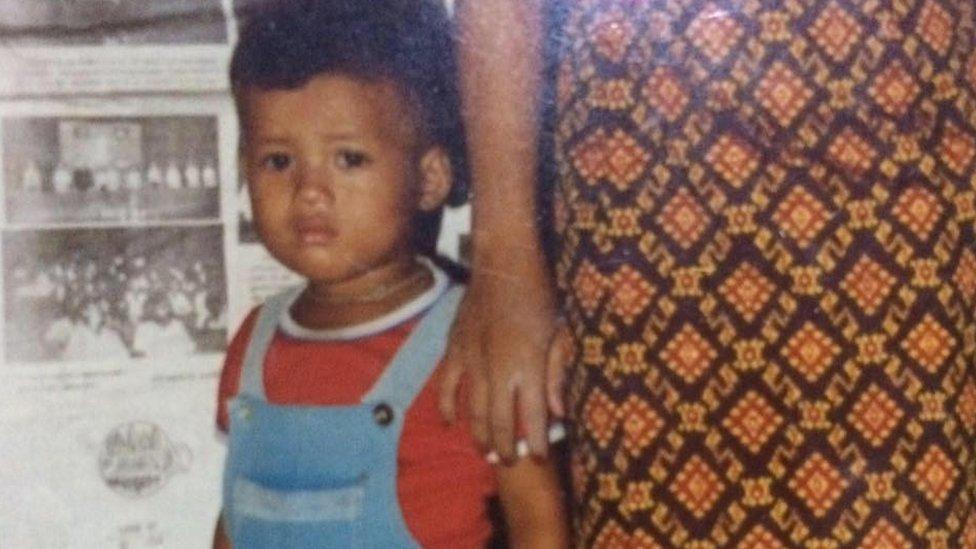
Dara was born in Kandal province, near Phnom Penh
When his grandmother passed away, he had to live in a pagoda for a period.
But Dara recalls being told more than once as a child that he would one day be a journalist because of his inquisitive nature. At the time, he didn't know what the word meant.
He eventually moved to the capital Phnom Penh, where he lived with various family members over the years. He started learning English and heard about The Cambodia Daily, one of the country's two English-language newspapers.
After school, he would cycle to the Daily's newsroom to read the pages posted on a board outside for people to read for free.
One day, he was asked in for a chat and was put in charge of organising the archives. But Dara soon decided he wanted to be out in the field chasing his own stories - not filing those reported by others.
"I never quit asking, barking at people to take me out reporting. I asked hundreds of times," he said. And then one day he got his chance.
Like most rookie reporters, Dara was first assigned crime stories. But it didn't take long for him to get his teeth into bigger stories: on politics, labour and human rights.
"Through sheer force of will and hard work he transformed from being a kid looking in the window of a newsroom to being the very essence of that newsroom," a former manager at the Daily said.
In 2016, Dara made the difficult decision to move from the Daily to its rival across town, the Phnom Penh Post.
Both outlets enjoyed freedoms that the local Khmer-language media did not, often reporting on controversial subjects like corruption, deforestation and forced evictions.
Some observers believe this tolerance of English-language press was in part down to the government needing to appease Western donors. They say that China's growing influence in Cambodia in the last decade has changed that, because Beijing does not insist on such assurances.
Soon after moving to the Phnom Penh Post, Dara had to watch as his beloved old newsroom closed.
The government hit the Cambodia Daily with a $6.3m (£4.9m) tax bill, which it strongly disputed. Prime Minister Hun Sen called the publishers "thieves" and said if the bill was not paid within 30 days, the paper should "pack up your things and leave". The outlet closed a month later.
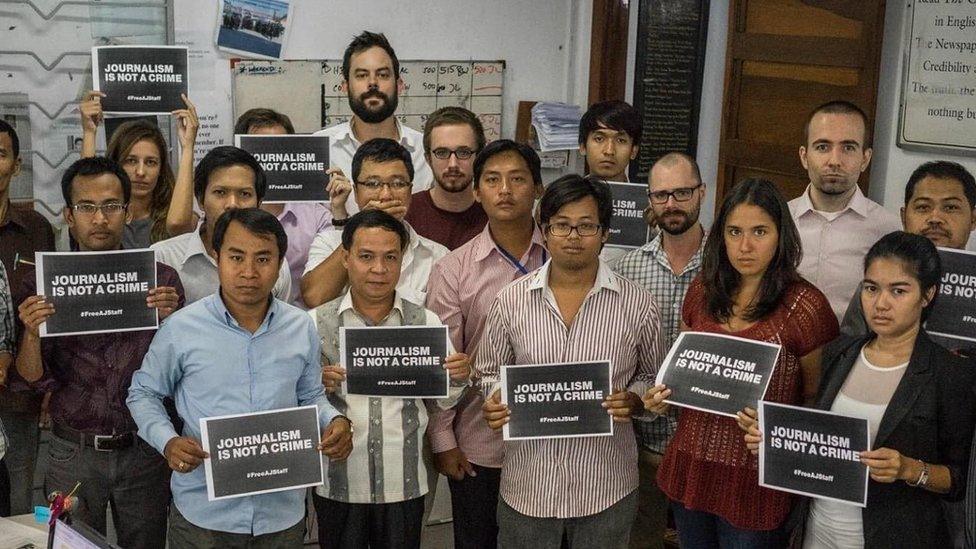
Dara, front centre, with his Cambodia Daily colleagues in 2015
Then a year later, the Post was sold to a PR firm with close ties to the government. Many of its journalists resigned after the new owners fired the editor-in-chief and demanded that a story about the sale be removed from the website.
Dara eventually left too: "I couldn't take it anymore."
With the Cambodia Daily closed and the Phnom Penh Post effectively neutralised, VOD started filling the void.
It was created in 2003 as an independent media outlet mainly focused on radio broadcasts. In 2017 it had stations closed as part of a wider crackdown on the country's media.
Dara started freelancing for the VOD website in 2020 and joined as a full-time staffer about a year later. After fearing his career was over, he said the VOD newsroom reinvigorated him.
"I was very excited. I was missing a lot of people I used to work with, but we had new people," he said.
It was at VOD where Dara pursued perhaps his biggest story of all - how Cambodian human-trafficking hubs were forcing victims to carry out global online scams.
The story was doggedly reported by VOD, external, and drew global attention as major newsrooms including the BBC covered it.
Dara was detained by police while reporting in the coastal city of Sihanoukville, external.
Some have suggested this may have played a role in VOD being targeted.
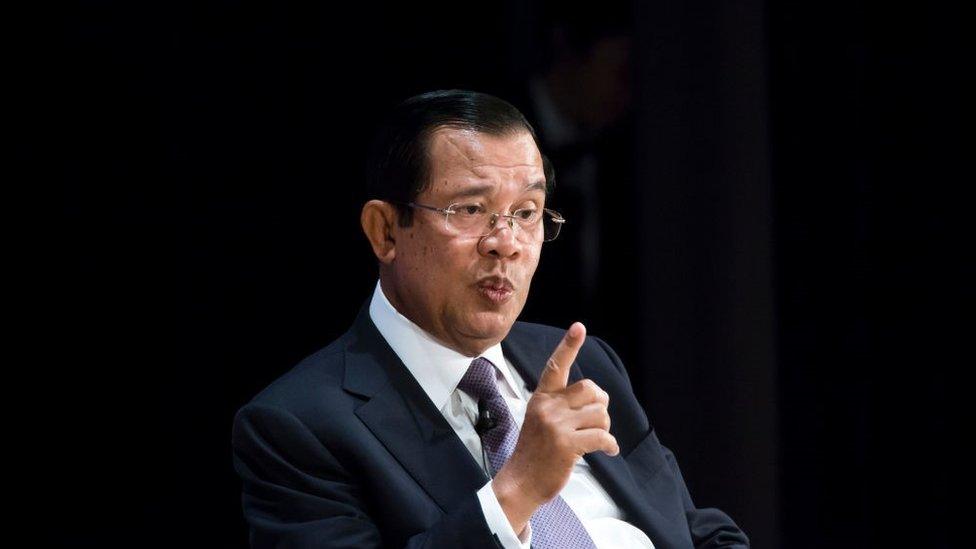
Hun Sen is one of the world's longest-serving authoritarian leaders
Others have pointed to Cambodia's upcoming general election in July.
Hun Sen, 70, is one of the world's longest-serving authoritarian leaders, having ruled Cambodia since 1985. He is currently serving a sixth term as prime minister in what is effectively a one-party state, having forced several opposition politicians into jail or exile.
"Keeping VOD around allowed him to argue that there was still a vestige of some independent press around," said Sophal Ear, a scholar of Cambodia's politics and development at Arizona State University.
"However, after securing yet more financial assistance from China, and seeing that the election is around the corner, he decided to pounce and get rid of VOD."
Hun Sen has since told VOD staff they can apply to work for the government if they wish., external
That's not an option for Dara, who has been hit hard with the loss of another job he loved.
"I couldn't sleep for two or three nights," he said, adding that he might have to accept that his journalism career is over.
"I feel very low," he said. "Three places have been shut down. Sometimes you reach a point and you say - enough is enough."
(George Wright worked for The Cambodia Daily from 2013 to 2017)
Related topics
- Published13 February 2023
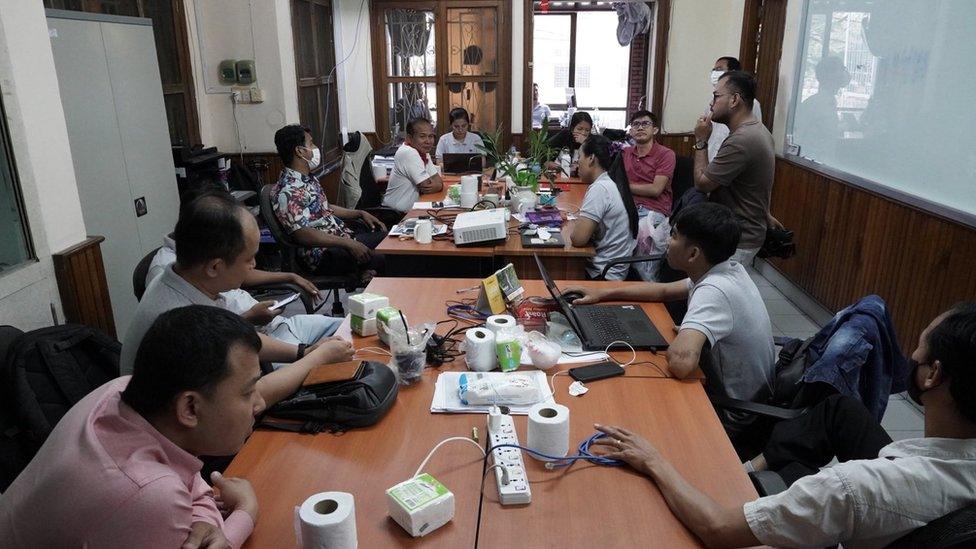
- Published3 September 2017
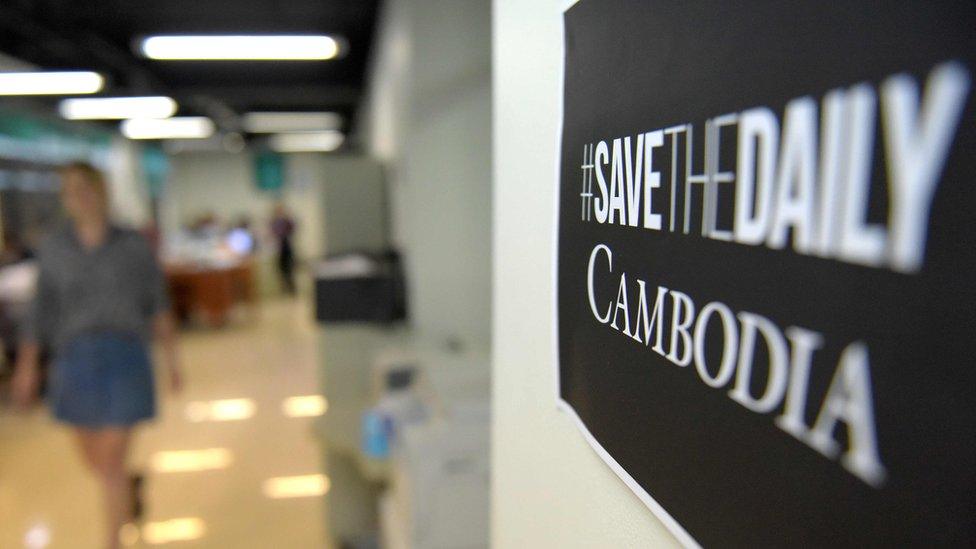
- Published7 May 2018
